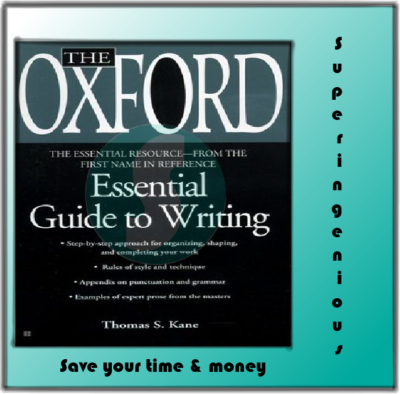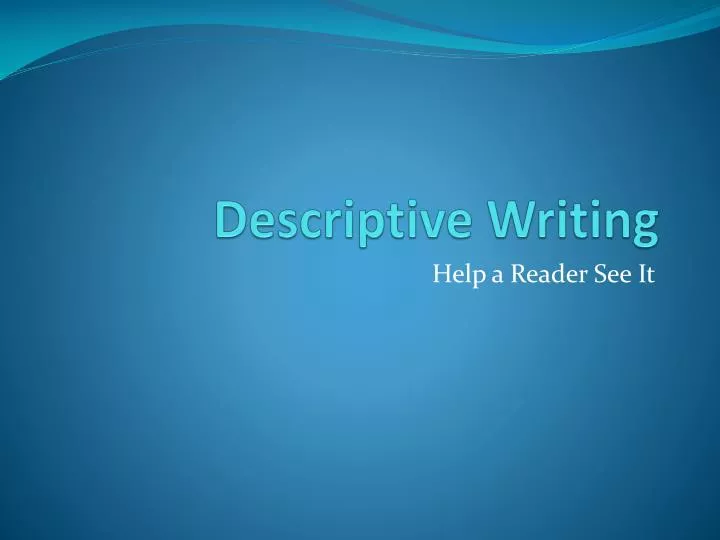This book was made available at this website: blogger.com Grammar Oxford Essential Guide To blogger.com Marcio Mota. Download PDF. Download Full PDF Package. This paper. A short summary of this paper. 26 Full PDFs related to this paper. READ PAPER. Grammar Oxford Essential Guide To blogger.com Download. Grammar Oxford Essential Guide To Writing The Oxford Essential Guide to Writing is divided into several parts which address a variety of issues. These include:* The Writing Process* The Essay* The Expository Paragraph* The Sentence* Diction* Description And Narration* PunctuationMany shy away from writing guides, such as this
Oxford Essential Guide To Writing - KENYA
To browse Academia. edu and the wider internet faster and more securely, please take a few seconds to upgrade your browser. Skip to main content. edu no longer supports Internet Explorer, oxford essential guide to writing. Log In Sign Up. Download Free PDF. Grammar Oxford Essential Guide To Writing. Marcio Mota. Download PDF. Download Full PDF Package This paper.
A short summary of this paper. READ PAPER. If you purchased this book without a cover, you should be aware that this oxford essential guide to writing is stolen property. It was reported as "unsold and destroyed" to the publisher, and neither the author nor the publisher has received any payments for this "stripped book. To say that writing is rational means nothing more than that it is an exercise of mind requiring the mastery of techniques anyone oxford essential guide to writing learn.
Obviously, there are limits: one cannot learn to write like Shakespeare or Charles Dickens. You can't become a genius by reading a book. But you don't have to oxford essential guide to writing a genius to write clear, effective English. You just have to understand what writing involves and to know how to handle words and sentences and paragraphs. That you can oxford essential guide to writing. If you do, you can communicate what you want to communicate in words other people can understand.
This book will help by showing you what good writers do. The second assumption is that writing is worth learning. It is of immediate practical benefit in almost any job or career, oxford essential guide to writing. Certainly there are many jobs in which you can get oxford essential guide to writing without being able to write clearly. If you know how to write, however, you will get along faster and farther. There is another, more profound value to writing. We create ourselves by words.
Before we are businesspeople or lawyers or engineers or teachers, we are human beings. Our growth as human beings depends on our capacity to understand and to use language. Writing is a way of growing. No one would argue that being able to write will make you morally better. But it will make you more complex and more interesting-in a word, more human.
CHAPTER 1Subject, Reader, and Kinds of Writing Choosing a SubjectOften, of course, you are not free to choose at all. You must compose a report for a business meeting or write on an assigned topic for an English class. The problem then becomes not what to write about but how to attack it, a question we'll discuss in Chapters 5 and 6.
When you can select a subject for yourself, it ought to interest you, and interest others as well, oxford essential guide to writing, at least potentially. It should be within the range of your experience and skill, though it is best if it stretches you. It ought to be neither so vast that no one person can encompass it nor so narrow and trivial that no one cares. Don't be afraid to express your own opinions and feelings.
You are a vital part of the subject. No matter what the topic, you are really writing about how you understand it, how you feel about it. Good writing has personality. Readers enjoy sensing a mind at work, hearing a clear voice, responding to an unusual sensibility.
If you have chosen a topic that is of general concern, and if genuine feeling and intelligence come through, you will be interesting. Interest lies not so much in a topic as in what a writer has made of it.
This doesn't mean you have to flatter them or avoid saying something they may disagree with. It does mean you must respect them. Don't take their interest for granted or suppose that it is the readers' job to follow you. It's your job to guide them, to make their task as easy as the subject allows. Ask yourself questions about your readers: What can I expect them to know and not know? What do they believe and value? Oxford essential guide to writing do I want to affect them by what I say?
Oxford essential guide to writing attitudes and claims will meet with their approval? What will offend them? What objections may they have to my ideas, and how can I anticipate and counter those objections? Readers may be annoyed if you overestimate their knowledge.
Tossing off unusual words may seem a put-down, a way of saying, oxford essential guide to writing, "I know more than you. It isn't easy to gauge your readers' level of knowledge or to sense their beliefs and values.
Sensitivity to readers comes only with experience, and then imperfectly. Tact and respect, however, go a long way. Readers have egos too. its subject, exposition reveals what a particular mind thinks or knows or believes. Exposition is constructed logically.
Its movement is signaled by connectives like therefore, oxford essential guide to writing, however, and so, besides, but, not only, more important, in fact, for example. Description deals with perceptions-most commonly visual perceptions. Its central problem is to arrange what we see into a significant pattern.
The subject of narration is a series of related events-a story. Its problem is twofold: to arrange the events in a sequence of time and to reveal their significance. Persuasion seeks to alter how readers think or believe. It is usually about controversial topics and often appeals to reason in the form of argument, offering evidence or logical proof. Another form of persuasion is satire, which ridicules folly or evil, sometimes subtly, sometimes crudely and coarsely.
Finally, persuasion may be in the form of eloquence, appealing to ideals and noble sentiments. Writing that is primarily entertaining includes fiction, personal essays, sketches. Such prose will receive less attention here. It is certainly important, oxford essential guide to writing, but it is more remote from everyday needs than exposition or persuasion.
Think of topics that deal not so much with things, places, or how-todo projects as with your opinions and beliefs. Pick subjects that interest you and are within your experience, yet challenging. Be specific: don't simply write "my job" but something like "what I like most or hate most about my job.
Think about their general knowledge, values, attitudes, biases; whether they are your age or older or younger, come from a similar or a different background; and how you would like them to regard you.
Purpose, the end you're aiming at, determines strategy and style. Strategy involves choice-selecting particular aspects of a topic to develop, deciding how to organize them, choosing this word rather than that, constructing various types of sentences, building paragraphs. Style is the result of strategy, the language that makes the strategy work. Think of purpose, strategy, and style in terms of increasing abstractness.
Style is immediate and obvious. It exists in the writing itself; it is the sum of the actual words, sentences, paragraphs. Strategy is more abstract, felt beneath the words as the immediate ends they serve. Purpose is even deeper, supporting strategy and involving not only what you write about but how you affect readers.
A brief example will clarify these overlapping concepts. It was written by a college student in a fifteen-minute classroom exercise. The several topics from which the students could choose were stated broadly-"marriage," "parents," "teachers," and so on-so that each writer had to think about restricting and organizing his or her composition.
This student chose "marriage":Why get married? Or if you are modern, why live together? Answer: Insecurity. How do you oxford essential guide to writing someone of the opposite sex? Sexually is an insufficient explanation. Other animals do not stay with a mate for more than one season; some not even that long. Companionship, although a better answer, is also an incomplete explanation.
We all have several friends.
IELTS Writing - Using Linking Words and Phrases to Improve Your Score
, time: 21:40(PDF) ESSENTIAL GUIDE TO WRITING--Oxford | ERNST WENDLAND - blogger.com

The Oxford Essential Guide to blogger.com - Google Drive Sign in The Oxford Essential Guide to Writing. This essential resource helps all writers organize, shape, and complete their work while expressing their ideas creatively and clearly. Rules of style and technique are covered, with examples of expert prose from the masters. An Appendix covers punctuation and grammar/5 The Oxford Essential Guide to Writing is divided into several parts which address a variety of issues. These include:* The Writing Process* The Essay* The Expository Paragraph* The Sentence* Diction* Description And Narration* PunctuationMany shy away from writing guides, such as this

No comments:
Post a Comment